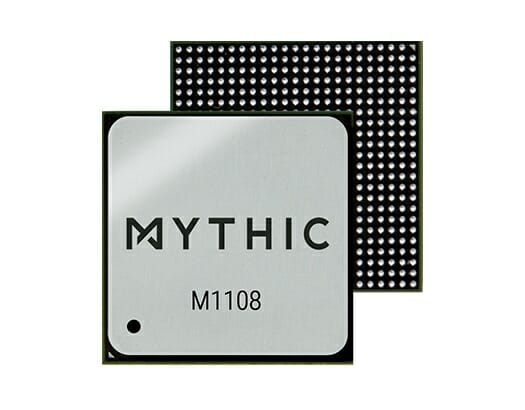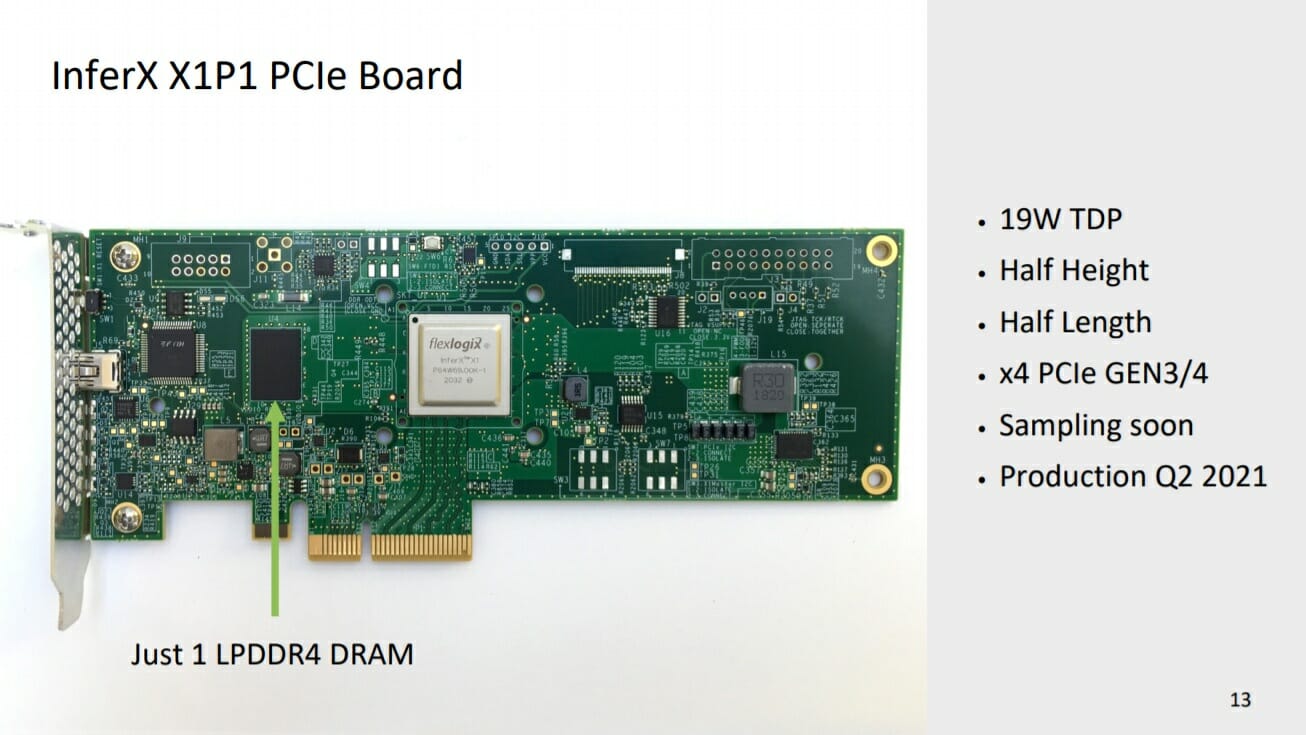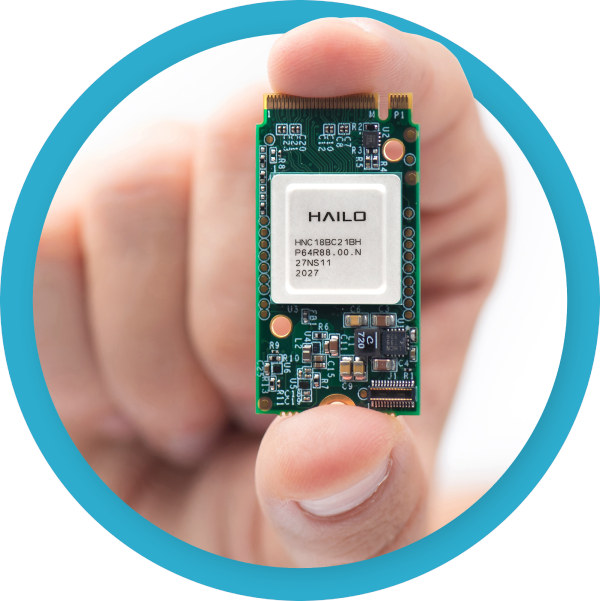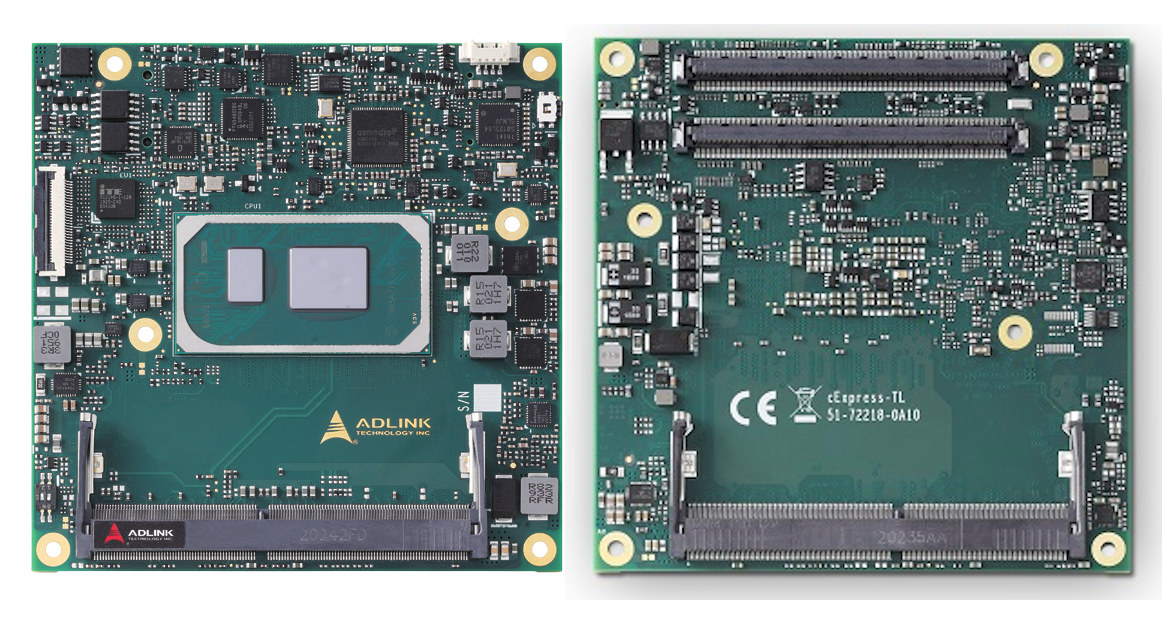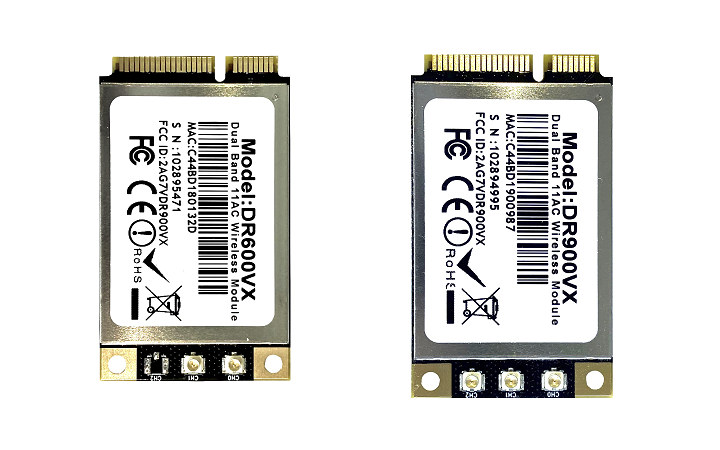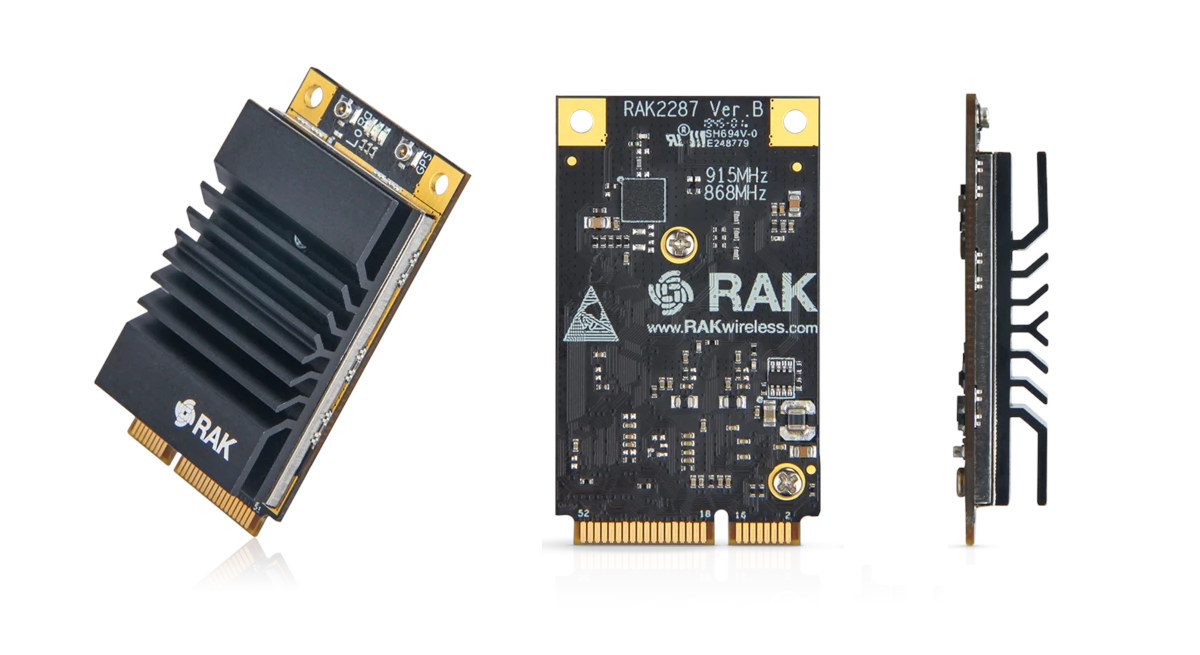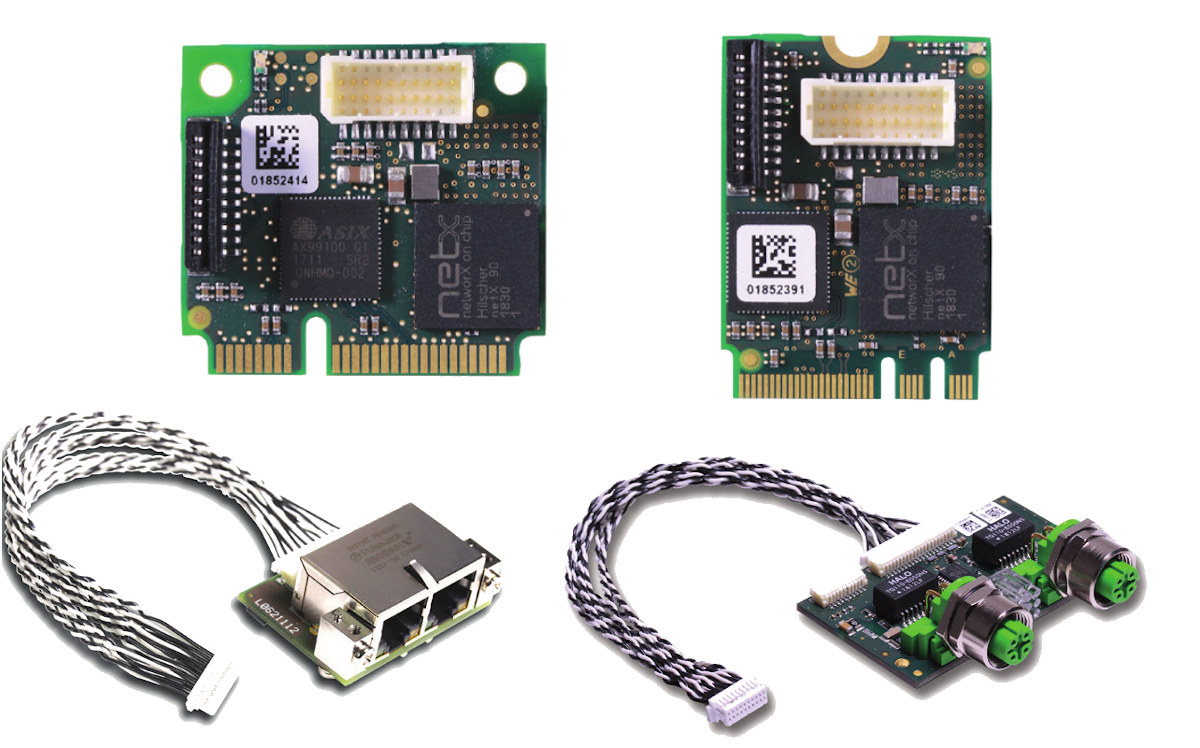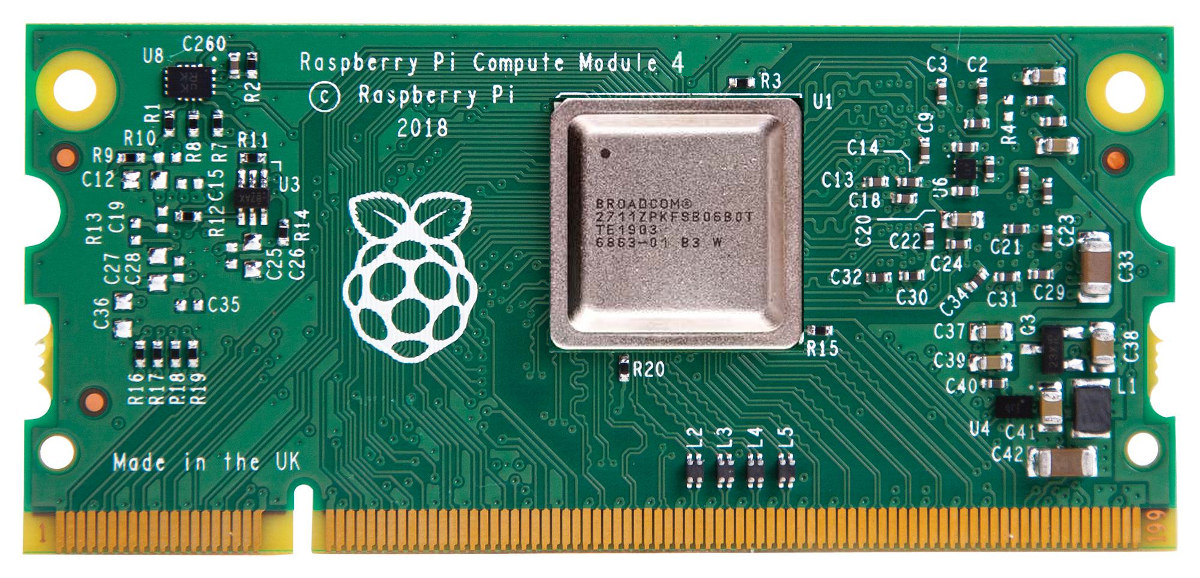Last week, Mythic announced a breakthrough with compute-in-memory technology based on a 40 nm process with what the company claims to be the industry’s first Analog Matrix Processor. The M1108 AMP AI accelerator chip targets high-end edge AI applications including smart home, AR/VR, drones, and is said to set a benchmark in the industry for high performance and low power in a single cost-effective device, also available in M.2 and PCIe form factors. The M1108 comes with an array of flash cells, ADCs, a 32-bit RISC-V nano-processor, a SIMD vector engine, SRAM, and a high-throughput Network-on-Chip (NOC) router. With 108 AMP tiles, the M1108 provides up to 35 Trillion-Operations-per-Second (TOPS) enabling ResNet-50 at up to 870 fps. This enables a power-efficient execution of complex AI models such as ResNet-50, YOLOv3, and OpenPose Body25. The industry leader NVIDIA also has a similar AI accelerator chip NVIDIA Xavier AGX which delivers up […]
InferX X1 SDK, PCIe and M.2 Boards for edge inference acceleration
Last week, Flex Logix announced the InferX X1 AI Inference Accelerator at Linley Fall Conference 2020. Today, they announced the InferX X1 SDK, PCIe board, and M.2 board. InferX X1 Edge Inference SDK The InferX Edge Inference SDK is simple and easy. The input to the compiler can be an open-source high-level, hardware-agnostic implementation of the neural network model that can be TensorFlow Lite or ONNX model. The compiler takes this model and looks for the available X1 resources and generates a binary executable file. This goes to the runtime which then takes the input stream, for example, a live feed from a camera. The user has to specify which compiler model, then the InferX X1 driver takes it and sends it to hardware. The binary file generated is fed to InferX X1 through the runtime. Then it takes the input data stream with a user-specified model and gives the […]
Hailo-8 M.2 and mini PCIe AI accelerator cards deliver up to 26 TOPS
[Update Sep 3, 2020: The post has been edited to correct Google Coral M.2 power consumption] If you were to add M.2 or mPCIe AI accelerator card to a computer or board, you’d mostly have the choice between Google Coral M.2 or mini PCIe card based on the 4TOPS Google Edge TPU, or one of AAEON AI Core cards based on Intel Movidius Myriad 2 (100 GOPS) or Myriad X (1 TOPS per chip). There are also some other cards like Kneron 520 powered M.2 or mPCIe cards, but I believe the Intel and Google cards are the most commonly used. If you ever need more performance, you’d have to connect cards with multiple Edge or Movidius accelerators or use one M.2 or mini PCIe card equipped with Halio-8 NPU delivering a whopping 26 TOPS on a single chip. Hailo-8 M.2 accelerator card key features and specifications: AI Processor – […]
Intel Tiger Lake UP3 COM Express Module Offers High AI Performance, PCIe Gen4 Interface
Earlier today, Intel announced the Elkhart Lake IoT edge processor family, and as well as more 15W Tiger Lake Core i3/i5/i7 UP3 processors designed for IoT & embedded applications, and with a configurable TDP from 12W to 28W. ADLINK Technology is leveraging existing and those new Tiger Lake UP3 processors with the cExpress-TL COM Express Type 6 module based on the various Intel Core i7/i5/i3 and Celeron Tiger Lake UP3 SKUs delivering three times the AI inferencing performance of older platforms thanks to AVX-512 Vector Neural Network Instructions (AVX512 VNNI) instructions and equipped with the latest PCIe Gen4 expansion interface. cExpress-TL COM Express Tiger Lake module specifications: SoC (one or the other) Intel Core i7-1185G7E quad-core/octa-thread processor with 12MB cache, Intel Iris Xe graphics with 96x EU; up to 28W TDP (cTDP 15W) Intel Core i5-1145G7E quad-core/octa-thread processor with 8MB cache, Intel Iris Xe graphics with 80x EU; up to […]
Wallys WiFi 5 (802.11ac) mini PCIe cards deliver higher Tx power and performance (Sponsored)
Wallys is offering two mini PCIe cards to add WiFI 5 (802.11ac) to existing gateways, computers, or boards. Both 802.11ac modules are powered by Qualcomm Atheros QCA9880 chipset, with DR600VX mPCIe module delivering up to up to 867Mbps thanks to 2×2 MIMO, and DR900VX mPCIe module up to 1.3 Gbps using 3×3 MIMO technology. Both modules share most of the same key features & specifications: Chipset – Qualcomm Atheros QCA9880 wireless local area network (WLAN) system-on-chip (SoC) for 5 GHz 802.11ac or 2.4/5 GHz 802.11n WLAN WiFi 2.4GHz max 26dBm & 5GHz max 25dBm output power IEEE 802.11ac compliant & backward compatible with 802.11a/b/g/n IEEE 802.11d, e, h, i, k, r, v time stamp, and w standards DR600VX – 2×2 MIMO technology up to 867 Mbps DR900VX – 3×3 MIMO technology up to 1.3 Gbps Supports Spatial Multiplexing, Cyclic-Delay Diversity (CDD), Low-Density Parity Check (LDPC) Codes, Maximal Ratio Support for […]
RAK2287 Mini PCIe LoRaWAN Concentrator Module Supports up to 500 Nodes per km2
RAK Wireless launched its first Mini PCIe LoRaWAN concentrator module in 2018 with RAK833 mPCIe card featuring Semtech SX1301 LoRa baseband chip. It was soon followed by RAK2247 mPCIe with a very similar design but some tweaks to increase its maximum transmission power and range, and improve thermals and stability with the addition of a heatsink. The company has now introduced a new version with RAK2287 Mini PCie LoRaWAN concentrator module being mostly inspired by RAK2247 module but replacing Semtech SX1301 by Semtech SX1302 LoRa transceiver that’s suppose to reduce current consumption (and heat), lower the BoM cost, and able to handle a higher amount of traffic. The new mini PCIe card also adds u-blox ZOE-M8Q GPS system-in-package to provide GNSS functionality. RAK2287 key features and specifications: LoRa Connectivity Semtech SX1302 LoRa Transceiver with 2x SX1250 Tx/Rx front-end Tx power – up to 27dBm Rx sensitivity – down to -139dBm […]
M.2 and Half-size mPCIe Cards Support Real-Time Ethernet and FieldBus Networks
Hilscher cifX M.2 and half-size mini PCIe cards powered by the company’s NETX 90 network-on-chip multi-protocol Cortex-M4 SoC bring real-time Ethernet and FieldBus to compatible systems. The tiny cards are designed for PC-based devices such as IPC’s, HMI’s and robots, and support various firmware for PROFINET IO-Device, EtherNet/IP Adapter, EtherCAT Slave, or OpenModbus/TCP. The company claims its cifX M.2 (A+E key) and half-size mini PCIe cards are the smallest multiprotocol PC cards on the automation market with a size of 22×30 mm and 30×26.8 mm respectively. The cards also support extended temperature from -20°C to 70°C and offer one hardware platform for all real-time Ethernet slave protocols. Besides PROFINET IO-Device, EtherNet/IP Adapter, EtherCAT Slave, and OpenModbus/TCP, Hilscher will provide support for CC-Link IE Field Basic and Ethernet POWERLINK Slave in new firmware available in Q4 2020, and OPC UA and MQTT functionalities are planned for future releases. The cards are […]
Raspberry Pi Compute Module 4 Coming Next Year with PCIe/NVMe Support
The Raspberry Pi 4 features a Broadcom BCM2711 processor with Cortex-A72/A53 cores that makes it competitive against other SBC’s based on Rockchip RK3399 or Amlogic S922X/A311D processors. The new processor also happens to have a PCIe interface, but it’s not exposed on the board since the interface is used by VIA VL805 PCIe USB 3.0 controller for the four USB 3.0 ports on the little computer. At the time, we expected the PCIe interface to be exposed in future Raspberry Pi boards or a Raspberry Pi Compute Module 4. But some people did not feel like waiting and instead hack the Raspberry Pi 4 SBC to access the PCIe interface. That hack is clearly not for everyone though… But based on a recent interview of Eben Upton with Tom’s Hardware we got pretty much confirmation that the Raspberry Pi Compute Module 4 will be coming next year, and expose PCIe […]


